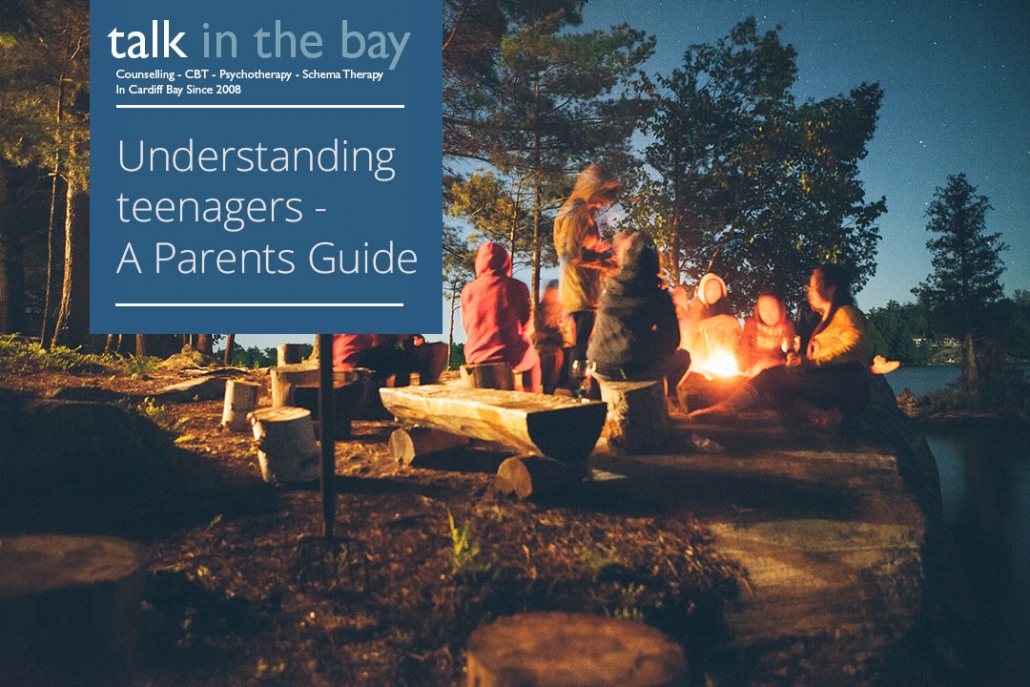7 steps towards understanding and improving the relationship between you and your teenager
The chances are that if you are reading this then you may well be struggling to understand what may be going on in your teenagers head. I do hope that this guide will be of some help to improving not only your understanding of the teenager in your life but ultimately the relationship that you have.
Neurologically speaking the brain is going through substantial changes during adolescence, all those connections that were built during childhood are gradually being “pruned away” as they are no longer needed. Essentially, use it or lose it. However during this time, other connections are being reinforced as this will help with the brain become more efficient over time. Please note the brain will become more efficient over time so patience is key.
Many parents comment that their adolescent child doesn’t think before they act……well, this is because of the “pruning process” that is currently taking place. The thinking part of the brain which is responsible for decision making, planning and understanding consequences is the pre-frontal cortex and will be the last section to undergo this “pruning.”
Until then, a part of the brain called the amygdala is relied upon to undertake to make decisions and work through problems. Difficulties arise as the amygdala is responsible for regulating emotions, aggression and instincts. So if you’re wondering why your teenager is…….
Now you know. But wait, this isn’t the only process that is taking place. Psychologically your teenager’s awareness of themselves, their relationships and their understanding of the world and where and how they fit in have an impact. At one point, your teenager most likely saw you as the all-seeing and all-knowing parent……however as they’ve gotten older this view of you has changed and they may very well tell you. Often.
So why is this process taking place!?
Well, it’s all down to evolution and been going on for thousands of years, how many of us have watched wildlife documentaries with Richard Attenborough saying something along the lines of “And now it’s time for the chimp/cub/chick/pup to leave its home and go it alone.”
For many parents watching their children navigate the transition from childhood to adolescence is incredibly difficult. The passing of time, wanting to protect their child from an ever increasing scary world and wanting their child go back to a time where they could protect them can be huge barriers to understanding what your teenager is going through.
I am sorry to break it to you Mum and Dad, your little one is getting older, the older they get the less they are going to need and rely on you. You can’t stop this process, it’s a vital part of their self-development and creating an identity. Rather than waste time wishing they were back to “how they used to be” it would be of greater benefit to accept what is happening, guide them as best as you can and trust them. Think modelling, demonstrate to your teenager the behaviour you would like to see.
- I can’t emphasise this one enough, if your child is struggling with their emotions then please do not say “It’s just your hormones.” This is quite possibly the single-handedly most unhelpful comment anyone could say to a teenager. Feelings and emotions are an extension of who they are, by throwing “It’s just your hormones” into the mix you’re dismissing your teenagers experience and invalidating their emotions. Essentially the young person is being told “What you’re expressing right now isn’t real so get over it.” Maybe you’ve said this, if so what happened next!? Fireworks I’d imagine or alternatively your child withdrew further into themselves.
- Encourage your teenager to take healthy risks and don’t be afraid to offer praise, this will help internalise and reinforce a positive image of themselves just as though neural pathways are being connected.
- Boundaries are important, do try to be flexible and open to negotiation. Does your teenager want to stay out an extra 30 minutes? Maybe you can agree to this but do not be afraid to spell out what will happen if they are late.
- Your teenager is not your best friend. Do not offload onto your teenager, if you are having difficulties it’s ok to be open and “real” about it but consider the impact of any disclosures that you make to them. Remember, model the behaviour you’d like to see…. Which leads me onto number 5.
- How are you? How is your own emotional wellbeing? When I talk to parents and ask this question I’m usually met with “I’m fine, just as long as my child is ok then I’ll be ok.” This is a lovely sentiment but inadvertently puts more pressure on the child to “be happy” then Mum or Dad can also “be happy.” Your teenager is most likely aware of this, believes that they are letting their parents down because they’re not “happy” and then thinks “I’ve failed” and is left wracked with feelings of guilt. Your teenager is not responsible for your happiness. If you want your teenager to behave in a particular way then model the behaviour you would like to see. If you are dealing with stress, anxiety, depression or have issues from your own childhood then take responsibility for these and take steps to find help. Maybe you’ve internalised your own critical or dismissive parent and it’s now playing out in the present. Once you get an understanding of your own issues you’ll be emotionally available for your teenager.
- “I told you so.” Your teenager is going to make mistakes……often. You may very well have told your teenager that if they make a particular choice there will be a particular outcome and in most likelihood they didn’t listen to you and you have been proved right. However, please do not say it. It’ll just drive a wedge between you. When it comes to helping your teenager make decisions ask them to consider the immediate and long term implications of their choices. Remember, you make mistakes too which leads me onto……
- It’s ok, you’re not perfect, you are a human being who gets some things right and some things wrong. This tip is easier said than done, but consider saying “I’m sorry” for the decisions you get wrong or mistakes that you make. It really is an incredibly powerful technique to strengthen and deepen your relationship.
I hope this brief guide has given you some understanding as to what may be going on for your teenager, being a parent is the most difficult job there is, so be patient with yourself, forgive your mistakes and in time both your teenager and yourself can navigate this most difficult stage of development and have a deeper relationship built on trust and respect.



